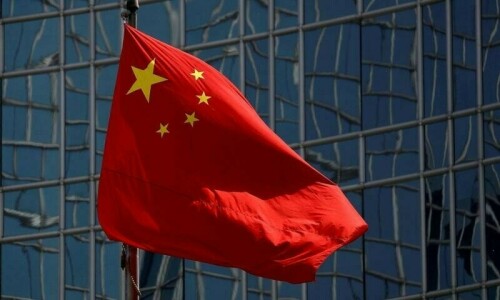THE most challenging year in recent memory has closed with some indicators prognosticating a nascent economic rejuvenation of sorts. So, what lies in store in 2024? Are the gloomy days now behind us that a possible rising tide from improved growth prospects will lift all boats?
The public at large cannot be expected to go into a trance on being informed that we have achieved both a primary and current account surplus. For them the fallout of back-breaking inflation and stringent austerity under the IMF programme has been a stifling of growth and economic opportunities.
And that these factors combined with supply chain disruptions caused by administrative restrictions of imports have amplified the market manipulative powers of a minority class, eroding the purchasing power of large segments of the population.
For them, unemployment rates and poverty levels are rising. And, although growing, these rates would have been higher but for the annual remittances of $30 billion and the informal sector which have kept the wheels of the economy somewhat running.
However, many in the lower-middle income group hovering around the poverty line, if unable to take on multiple jobs, have been pushed below it, while significant proportions of the middle-income group have been coping by adjusting their lifestyles or by running down available savings or by liquidating assets. A disturbing development is the loss of morale of the limited available quantity of the skilled. They are articulating their loss of faith in the future of the country by seeking any opening for an exit.
Meanwhile, an annual requirement of $25bn and reserves well below recommended levels are placing our ability to service external obligations increasingly at risk. The problem has become so acute that it may be too difficult to even deal with it through a reshuffling of maturities.
The country, therefore, appears poised to be invited into the IMF’s parlour for the 24th time. The second round of stabilisation and austerity will, with the depletion of these buffers, be more excruciating. A worrying outcome of the ensuing weariness could be the worsening of the already fragile social cohesion.
Our ‘friends’ have lost patience with us and are no longer agreeable to doling out lifelines.
Our “friends” have ostensibly lost patience with us and are no longer that readily agreeable to doling out lifelines without a change of our behaviour, while multilaterals on whose benefactions we live from year to year are, although coming so lately and equally to blame, openly expressing their exasperation at our repeated abandonment of commitments on reform.
Although our creditors are seemingly pondering over whether they should lend their names to our quest for international banker generosity so that we can live to borrow another day, they do not appear to be in the mood to pull the plug on our life support system, just yet.
A view fairly widely aired is that for pushing the economy onto a higher and sustainable growth path and attaining solvency much remains to be done to address the fundamental structural issues.
The list of these concerns is lengthy. It broadly includes political instability and unprecedented polarisation; the general state of uncertainty; policy unpredictability; a corruptible rule of law; bloated governments with their unproductive expenditures running wild; the huge footprint of the state in the economy (through profligacy, bankrolling loss-making inefficient SOEs and obsolete and excessive regulation) bludgeoning the fiscal accounts; different organs of the state crumbling with mechanisms of checks and balances in disarray (if not dysfunctional); a distortionary and predatory tax regime; lack of a sensible exchange rate policy; a system that continues to protect and support powerful “rentiers” at the expense of the economy’s competitiveness; unaffordable pricing of energy (because of the generous terms and conditions accorded to IPPs and continuing governance issues of DISCOs); lack of trade with our neighbours and high transaction costs of cross-border business; the restrictive regulatory environment and its cost (especially for investment whose rate now places us in the 130s among 151 countries); a country image unattractive for potential FDI; poor work culture/ethics and the weak quality of human capital.
It has been argued before in these columns that while the fiscal correction demanded by our donors is important, it is the quality anchored in the composition of the correction that is more important. The effort to achieve it must begin from the expenditure side of the fiscal equation.
Today, resources are being increasingly absorbed in the maintenance of state operations and not even maintenance of assets. By reprioritising expenditures, decentralising functional distribution and organisational structures of different tiers of government based on the principle of subsidiarity, we can modernise governance systems, thereby reducing opportunities for rent-seeking and corruption, improving resource allocation, reducing management costs and enhancing administrative and work capacities and efficiencies.
To conclude, we can only be complacent in tackling the above referred perennial fault lines (by continuing to embrace a ‘business as usual’ approach) at our own peril. The emergency for embarking on the long-overdue associated reforms is upon us, since the state’s domestic and global credibility has been severely damaged.
Since these problems have been accumulated over decades, the task ahead is a massive and long-drawn painful one, requiring a leadership (not visible to the naked eye today) with the vision and capability to distribute this pain equitably, based on the ability of the different economic groups to bear the burden of the required adjustment.
This would test the forbearance and determination of any leadership to stay on course, raising the obvious question whether the government likely to be assembled after the election will be able to fabricate the changes that will endure the test of time.
The writer is a former governor of the State Bank.
Published in Dawn, January 13th, 2024



































